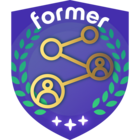Hey folks,
A non tech question. How do you keep up with it all?
Background. Since becoming a Veeam Legend a year ago I have made an effort to focus more on social media. I engaged Twitter and started a daily Linkedin watch. Every time I see something interesting I follow the person, I have also added a huge number of Linked in connections (nearing 1000 now!). The other day someone asked if I had not seen their post on Twitter. It was a great topic and the person knew it was of special interest to me. It became clear that I am simply not able to keep up with the constant stream of information.
What do you guys do? Can you create special watch groups for important feeds? Or should I just become a linkedin/Twitter junkie a la Facebook early 2000s and if my phone dies when camping up North in the woods go into severe withdrawal ! :)





